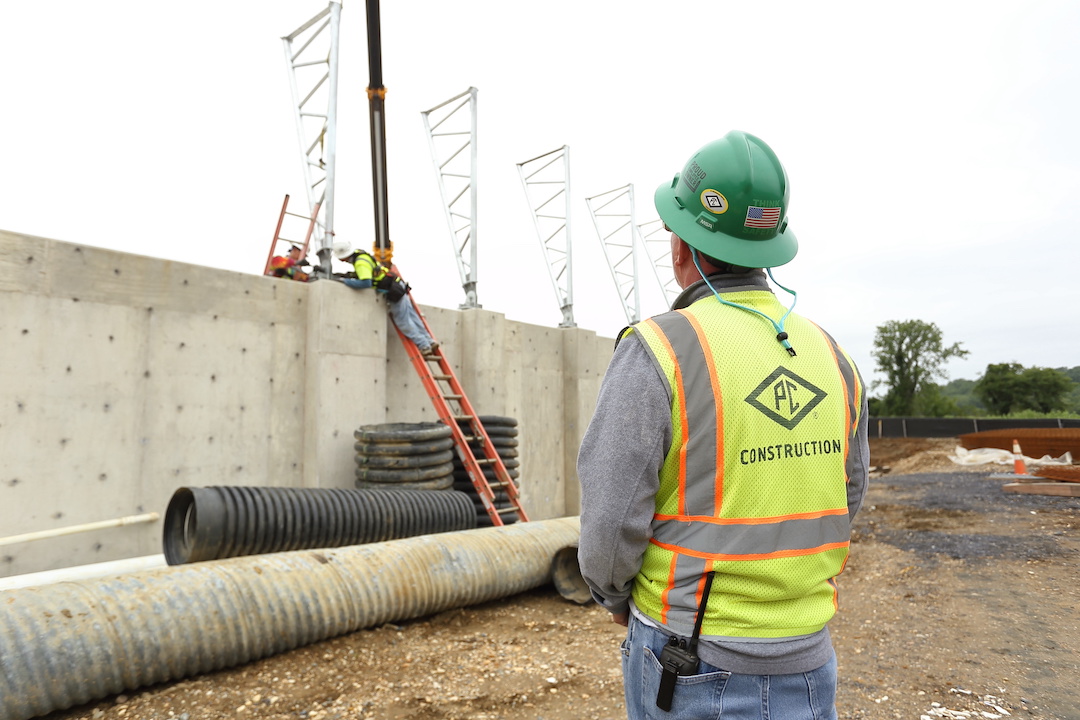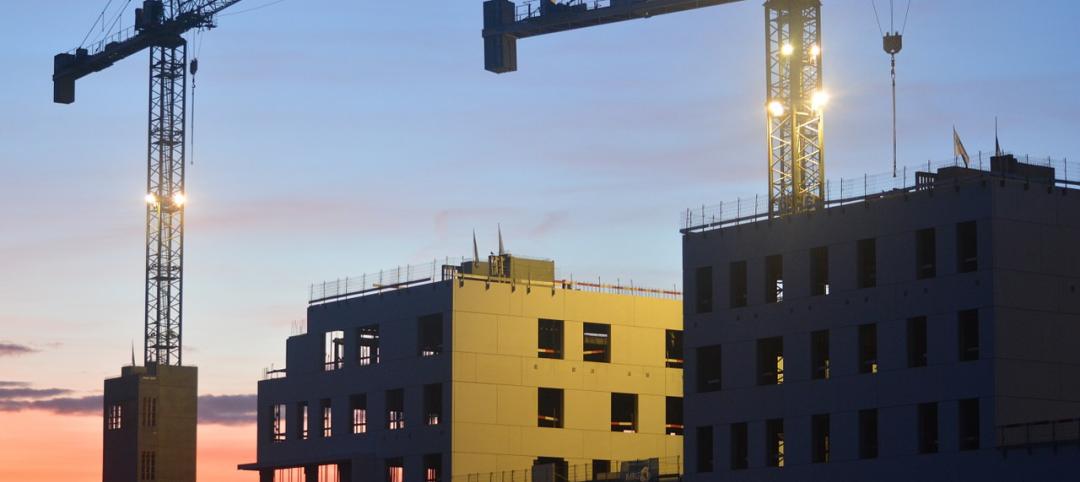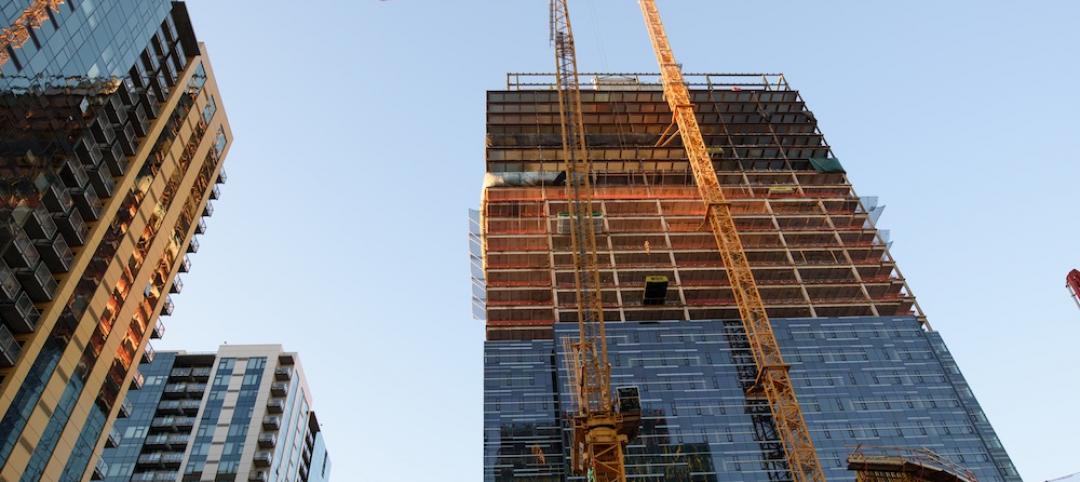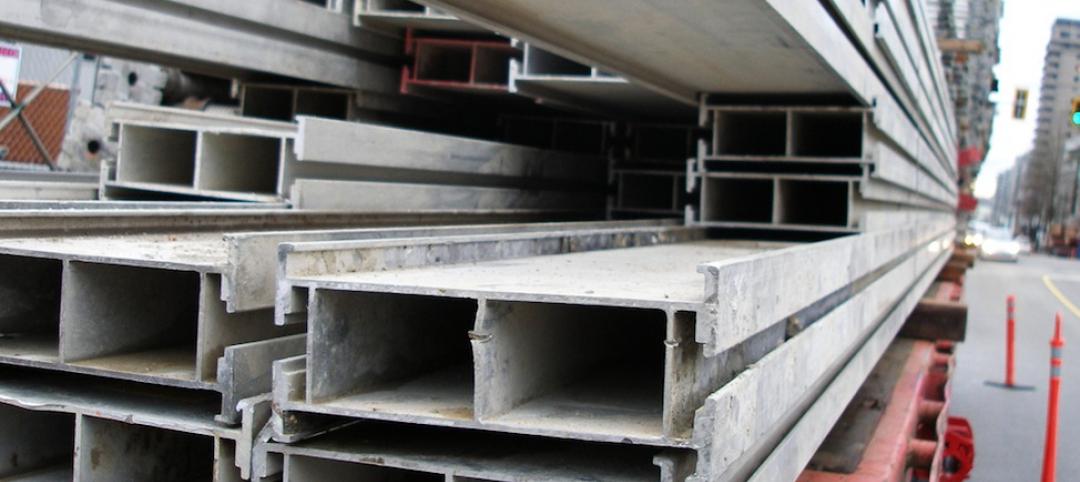The construction industry added 44,000 jobs between September and October as nonresidential construction firms posted back-to-back increases for the first time since January, according to an analysis by the Associated General Contractors of America of government data released today. Association officials said the employment gains were welcome news but cautioned that employment levels remain well-below pre-pandemic totals as firms struggle with supply chain problems, labor shortages and federal inaction on infrastructure funding.
“It is encouraging to see continuing job growth in nonresidential construction but the industry remains far behind the overall economy in recovering all of the job losses from the pandemic,” said Ken Simonson, the association’s chief economist. “Finding workers is a challenge after other sectors have hiring for much longer.”
Construction employment in October totaled 7,498,000, an increase of 44,000 since September. However, industry employment remained 150,000 below the pre-pandemic peak set in February 2020.
The nonresidential segment, comprising nonresidential building and specialty trade contractors plus heavy and civil engineering construction firms, added 33,000 employees in October, following a pickup of 25,800 in September. But nonresidential employment is 239,000 below the February 2020 level, as the sector has recovered only 63% of the jobs lost in the first two months of the pandemic.
Residential construction--including building contractors such as homebuilders, along with residential specialty trades--added 10,900 employees in October. Residential employment tops the February 2020 mark by 89,000. Simonson noted that the overall economy has regained 87% of the jobs lost between February and April 2020, an indication that many construction workers may have found jobs in homebuilding and remodeling or in other sectors.
Association officials urged members of the House of Representatives to quickly pass a federal infrastructure bill that received broad, bipartisan support in the Senate. They noted the new investments would help boost employment levels and improve overburdened distribution networks that are contributing to the supply chain problems. They also warned that new federal COVID vaccine mandates were likely to make it harder for firms that employ 100 or more people to retain and find new workers as the vaccine hesitant shift to smaller firms.
“House members should heed the lessons from this Tuesday’s elections and focus on passing bipartisan measures that will do much to boost our economy and improve supply chains,” said Stephen E. Sandherr, the association’s chief executive officer. “At the same time, we need to appreciate that having conflicting vaccine mandates for different types of firms is likely going to encourage the vaccine hesitant to work at places where the rules do not apply.”
Related Stories
Market Data | Feb 10, 2016
Nonresidential building starts and spending should see solid gains in 2016: Gilbane report
But finding skilled workers continues to be a problem and could inflate a project's costs.
Market Data | Feb 9, 2016
Cushman & Wakefield is bullish on U.S. economy and its property markets
Sees positive signs for construction and investment growth in warehouses, offices, and retail
Market Data | Feb 5, 2016
CMD/Oxford forecast: Nonresidential building growth will recover modestly in 2016
Increased government spending on infrastructure projects should help.
Market Data | Feb 4, 2016
Mortenson: Nonresidential construction costs expected to increase in six major metros
The Construction Cost Index, from Mortenson Construction, indicated rises between 3 and 4% on average.
Contractors | Feb 1, 2016
ABC: Tepid GDP growth a sign construction spending may sputter
Though the economy did not have a strong ending to 2015, the data does not suggest that nonresidential construction spending is set to decline.
Data Centers | Jan 28, 2016
Top 10 markets for data center construction
JLL’s latest outlook foresees a maturation in certain metros.
Market Data | Jan 20, 2016
Nonresidential building starts sag in 2015
CDM Research finds only a few positive signs among the leading sectors.
Market Data | Jan 20, 2016
Architecture Billings Index ends year on positive note
While volatility persists, architecture firms reported healthy performance for 2015.
Market Data | Jan 15, 2016
ABC: Construction material prices continue free fall in December
In December, construction material prices fell for the sixth consecutive month. Prices have declined 7.2% since peaking in August 2014.
Market Data | Jan 13, 2016
Morgan Stanley bucks gloom and doom, thinks U.S. economy has legs through 2020
Strong job growth and dwindling consumer debt give rise to hope.















